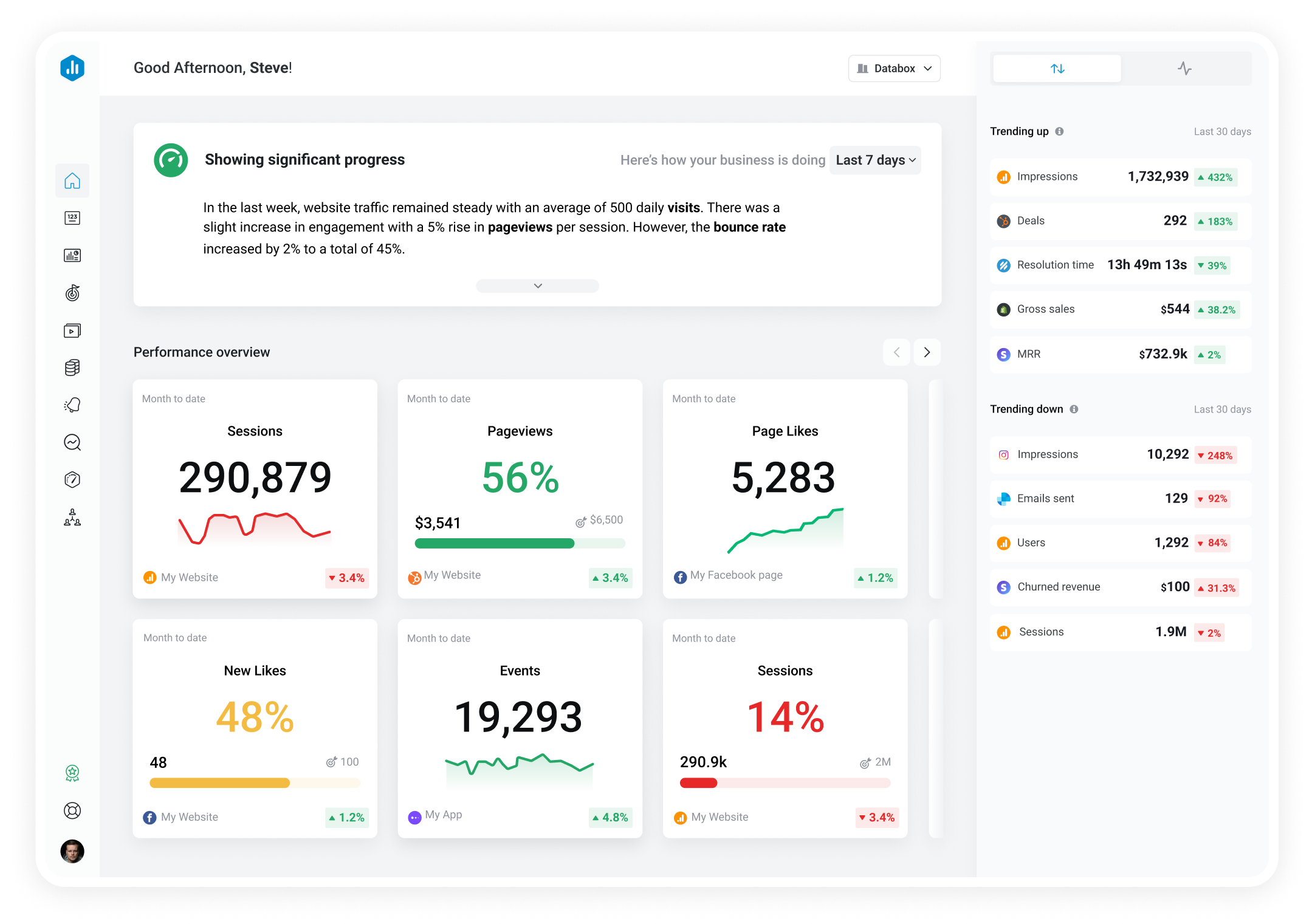Track all of your key business metrics from one screen
GET STARTED
 QuickBooks
Unpaid Expenses (Bills) Amount by Vendor
QuickBooks
Unpaid Expenses (Bills) Amount by Vendor The Unpaid Expenses (Bills) Amount by Vendor metric displays the total amount of outstanding bills owed to specific vendors in QuickBooks.
With Databox you can track all your metrics from various data sources in one place.

Used to show comparisons between values.
Databox is a business analytics software that allows you to track and visualize your most important metrics from any data source in one centralized platform.
To track Unpaid Expenses (Bills) Amount by Vendor using Databox, follow these steps:
 Goals
Goals Scorecards
Scorecards Metric Digest
Metric Digest Metric Builder
Metric Builder Data Calculations
Data Calculations Performance Screen
Performance Screen